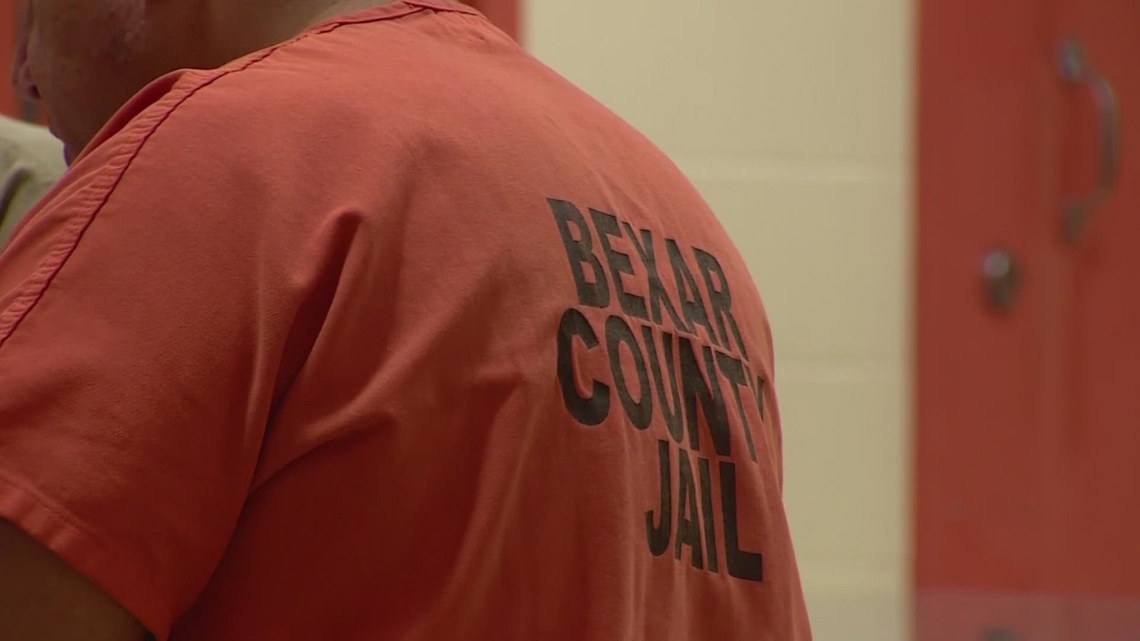
On Wednesday, a senate committee advanced the bail bond package they claim will give judges more opportunities to deny bail to suspects they believe are a threat.
SAN ANTONIO — Texas lawmakers are pushing for bail reform this legislative session. A change that San Antonio’s own police chief has been calling for.
On Wednesday, a senate committee advanced the bail bond package they claim will give judges more opportunities to deny bail to suspects they believe are a threat to the public.
The package includes three legislative bills and two proposed constitutional amendments. San Antonio Police Officers’ Association President, Danny Diaz said they are working alongside the Combined Law Enforcement Associations of Texas (CLEAT) to lobby in Austin.
“The push is in Austin to try and make these legislatures see it’s our constituents that are being harmed,” Diaz said. “The citizens of San Antonio, we need help.”
Just a few weeks ago during a District 10 community meeting, Chief William McManus spent several minutes discussing the need for bail reform. He claimed there have been repeat offenders out on bail who have shot his officers. Many of those discussion surrounded a series of officer-involved shootings in the summer of 2023.
Ahead of the senate committee meeting, Lt. Governor Dan Patrick held a press conference to demand lawmakers pass the package.
“We will not leave here until these bills pass the house,” Patrick said.
So, what are these proposed changes? The bail reform package includes three legislative bills and two proposed constitutional amendments.
- Senate Bill 9 would require a judge, instead of a magistrate or criminal law hearing officer to set bond for a defendant charged with violent felonies or has been previously convicted of two or more felonies.
- Senate Bill 40 would ban the use of tax dollars for nonprofits that pays for bonds
- Senate Bill 1047 would expand who has access to reports created by the Public Safety Report System
- Senate Joint Resolution 5 would amend the state’s constitution to expand which defendants can be denied bail
- Senate Joint Resolution 1 would amend the state’s constitution to deny bail for a person in the U.S. illegally who is charged with a felony
Similar bills have been introduced in pass legislative sessions but stalled in the House.
“There’s nothing more important than pushing back when courts release dangerous felons,” Lt. Governor Dan Patrick said.
Diaz said the association will do what it can to help advocate for the passage of the bail reform package.
“Hopefully this is a step in the right direction where these felons are kept in jail,” Diaz said.
However, there is pushback from civil rights groups. Several people spoke in opposition during the committee meeting Wednesday. They argued these changes would overcrowd jails and they would undermine the presumption of innocence. That includes Nick Hudson with the ACLU of Texas.
“70 percent of our jail population is presumptively innocent awaiting trial,” Hudson said. “Most of those detained are nonviolent unlikely to reoffend and imposing no risk of flight and they’re presumed innocent and no risk to public safety.”
He specifically spoke on SJR5 and claimed there are “consequential drafting error that we believe would result in over detention.”
He said the amendment allows detention of presumptively innocent people who do not have a lawyer to advocate for them. He also claimed judges could detain people if they think they might miss a court date which he believes is too low a bar to hold someone who is presumptively innocent.
Lt. Governor Patrick said the Texas Senate will take up the bills next week.
The Bexar County District Attorney released a statement regarding the reform:
As the law currently exists in Texas most offenders, including violent offenders, with few exceptions are entitled to an opportunity to be released on bond.
When my office reviews a case for prosecution we are asked to make what we believe are appropriate bond recommendations taking into account a person’s criminal history, the nature of the offense and risk to the community. However, the ultimate decision on where to set any bond rests with the magistrate judge. What my office may recommend as an appropriate bond amount may not be the actual bond amount ultimately set. Reforming the Texas bail bond system that allows judges to set bonds based on the risk to the community instead of a person’s financial ability to make a bond is a step in the right direction.
I applaud any effort to improve our bail bond system that ensures the safety of our citizens while also giving the judiciary the ability to remand those individuals without a bond that pose a significant threat to the public.
Joe D. Gonzales
